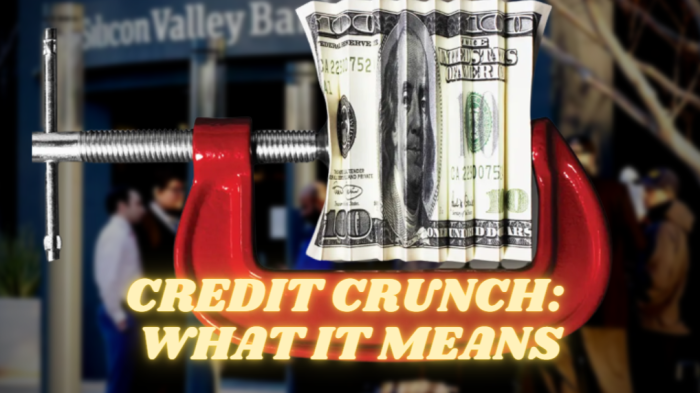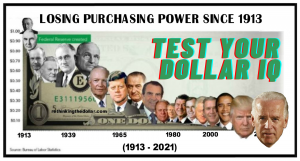Have you heard the phrase “credit crunch” a lot lately? Many people are worried because officials at the Federal Reserve aren’t sure if it will cause one and news outlets are warning about how it will affect the economy. But what exactly is a credit crunch, and why is it so bad for the economy as a whole? In this article, we’ll talk about what a credit crunch is, how it affects the economy, and why it’s important to understand.
A credit crunch is a shortage of credit or a sudden tightening of credit terms that makes it hard or impossible for businesses and people to borrow money. This can happen when banks and other financial institutions are less willing to lend money because the economy is uncertain, there are more risks, or for some other reason. When credit is tight, businesses may not be able to get the money they need to invest, grow, or even keep running. This can lead to layoffs, bankruptcy, and other economic problems.
One of the many problems that can come from a credit crunch is that it can mess up supply chains. Businesses need a steady flow of goods, services, and payments to keep their operations running smoothly in a globalized economy where just-in-time inventory management is the norm. If one part of the chain breaks, the whole thing can stop working. For example, if a supplier can’t get the raw materials it needs to make a product, it can’t fulfill the orders of its customers, and those customers may not be able to fulfill the orders of their customers, and so on. This can cause a chain reaction that affects the whole economy.
A credit crunch can also lead to a liquidity crisis, which is another problem. During a liquidity crisis, it’s hard for businesses and people to get cash, which makes it hard to pay bills, make investments, or even pay for day-to-day costs. This can be especially hard for small businesses, which may not have the same access to credit as larger companies. When businesses can’t get the money they need, they may have to lay off workers, cut back on operations, or even close down. This can send shockwaves through the economy as a whole.
So what does it all mean? It’s important because credit is what keeps the economy going. Businesses can’t grow, make investments, or hire people if they don’t have credit. Without jobs, people can’t buy goods and services, which means businesses can’t make money, and the cycle continues. When credit is hard to get, it can start a cycle that is hard to break. This can slow down the economy, make unemployment go up, and cause other problems.
What can be done to stop a shortage of credit? There is no simple answer because credit conditions are affected by a wide range of things, such as interest rates, inflation, economic policy, and events around the world. But businesses and individuals can take some steps to reduce the risks of a credit crunch. For example, businesses can get money from more than one source, save up cash, and keep good relationships with lenders. People can build up their savings, avoid taking on too much debt, and improve their credit scores.
In the end, a credit crunch is a serious economic problem that can have big effects on businesses, people, and the economy as a whole. By knowing what it is, how it works, and why it is important, we can be better ready for the challenges and chances that lie ahead. In these uncertain times, it’s important to stay informed and stay alert, whether you’re a business owner, an investor, or a customer.
Must watch videos on the RTD Blog!!!
- BRICS Pay To Challenge Global Order | All Attention On South Africa
- Cracks In The Banking System Could Have Been Avoided w/ Craig Alford
- Mega BRICS+ Bloc: The Ignored Summit That Could Change The World w/ Chris Devonshire-Ellis











0 Comments